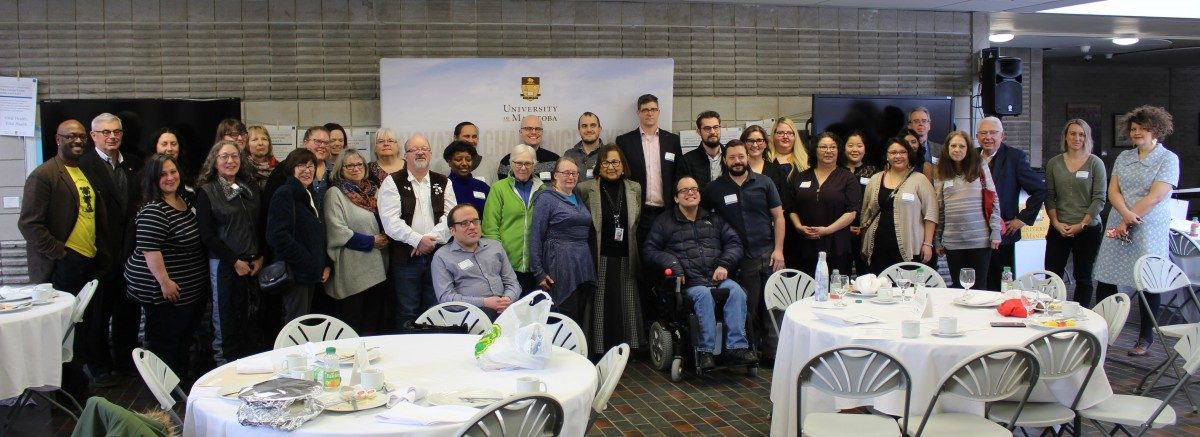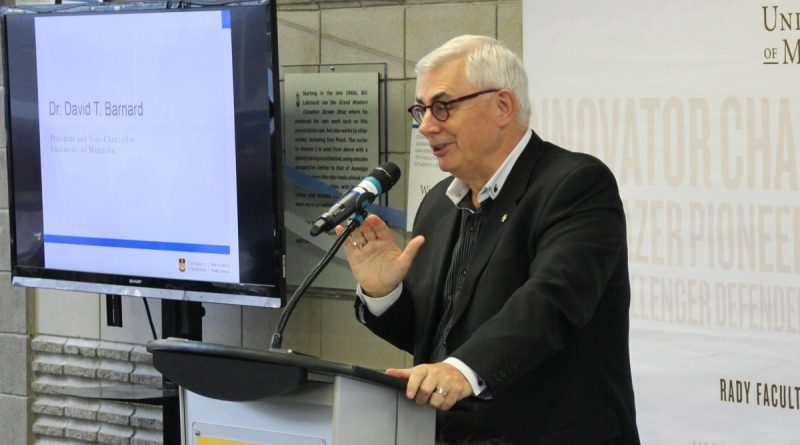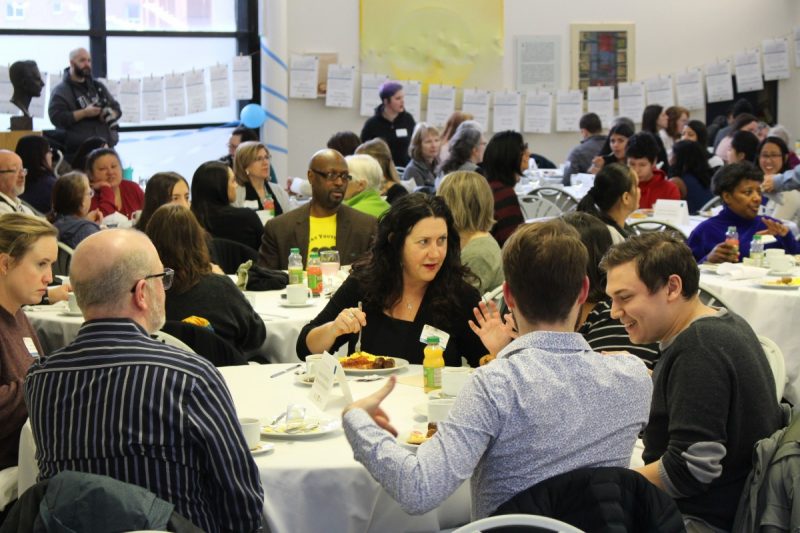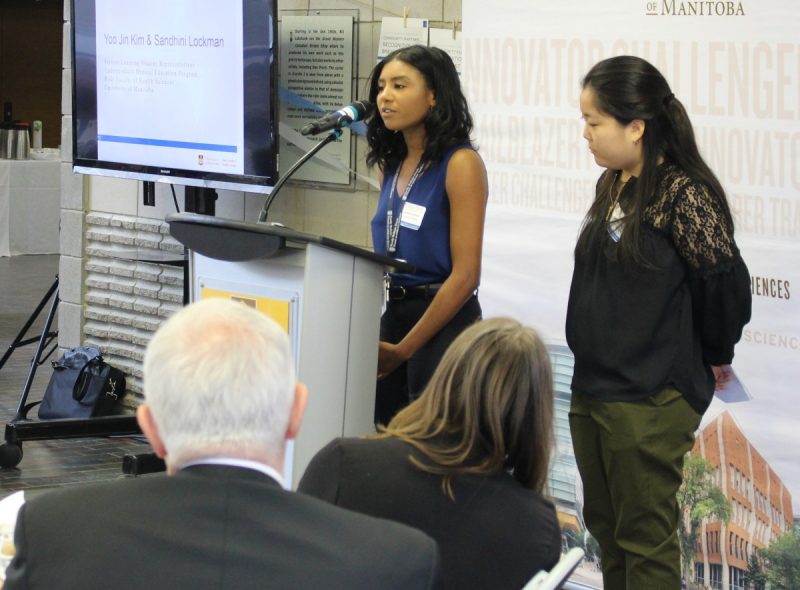
Some of the organization representatives and University of Manitoba members at the Community Partner Recognition Breakfast.
Community connections bolstered at breakfast
Community organizations do measureless amounts of good in Winnipeg, and the Rady Faculty of Health Sciences said “thank you” for the positive impact their partners have on University of Manitoba learners.
More than 85 local organizations were invited to the Bannatyne campus for the second annual Community Partner Recognition Breakfast on February 26 to acknowledge the multiple roles the groups play in the education of Rady Faculty students. The colleges in the Rady Faculty collaborate with community partners to develop, deliver and enrich their educational programming which has a direct impact on hundreds of students.

U of M President David Barnard speaks at the Community Partner Recognition Breakfast.
“This event and the contributions we’re here to celebrate are particularly inspiring because our community partners are not only transforming students’ lives but the lives of their future patients and clients,” U of M President David Barnard said. “By instilling in our learners the values of diversity, inclusion, and health equity, they’ll be better prepared to serve our community and the wider world.”
The second-annual Community Partner Recognition Breakfast was hosted by the Rady Faculty’s Office of Community Engagement.
One of the initiatives working with community partners is the service-learning program in the Max Rady College of Medicine. Throughout the first two years of medical school, students spend 46 hours working with a community organization. More than 220 students work with 36 organizations each year.
“It’s been really successful from the student perspective,” said Dr. Ian Whetter, co-lead, Office of Community Engagement. “Community members are experts on their own well-being so students can learn from that expertise. I think it also grounds them in the realities that people face day-to-day, so the barriers that people face all the time in trying to access health and well-being.”

More than 85 local organizations were invited to the second annual Community Partner Recognition Breakfast
Ken Opaleke, executive director of West Broadway Youth Outreach, is grateful for the range of students who help out at his organization. Having people with different perspectives and life experiences really impacts the kids’ lives in many positive ways, he said.
“With volunteers in our corner, honestly, there is very little we can’t accomplish,” Opaleke said. “They’re the foundation of what we do.”
Not only are the organizations benefitting from the relationship but the learners are too. Yoo Jin Kim, a second-year medical student who is completing her service learning placement with the Fort Garry Women’s Resource Centre and also volunteers with the West Broadway Youth Outreach, said it’s been an eye-opening experience.
“In didactic classroom learning it’s really hard to learn about some concepts or see the relevance,” she said. “It’s kind of difficult to connect when I come from a very fortunate background. So working with people that are going through those troubles, actually seeing people in these conditions that are unimaginable to me, and be able to make that connection from what I’m learning in the classroom to real life is really enriching my experience in medical school and helping me formulate what kind of doctor I’d like to be.”

First-year medical student Sandhini Lockman (left) and Yoo Jin Kim, a second-year medical student, are part of the service learning program.
First-year medical student Sandhini Lockman’s service learning placement is with the Rady Faculty’s Biomedical Youth Program. She said the program allows her to take a step back from traditional learning and connect with the community and touch on various social determinants of health that is just a list in the classroom.
“I enjoy working with youth in my community and service learning provides an opportunity for me to make a difference in a meaningful way through a reciprocal learning model that differs from traditional volunteering,” she said.
Karen Hill, a coordinator with New Directions, said she was happy her organization was invited to the breakfast and sees the advantages of working with the Rady Faculty.
“I think it’s a mutual reciprocity that is given because we get a lot of benefit from the students and the students take back from what we have to offer, and in line with that they build lasting relationships,” she said.






